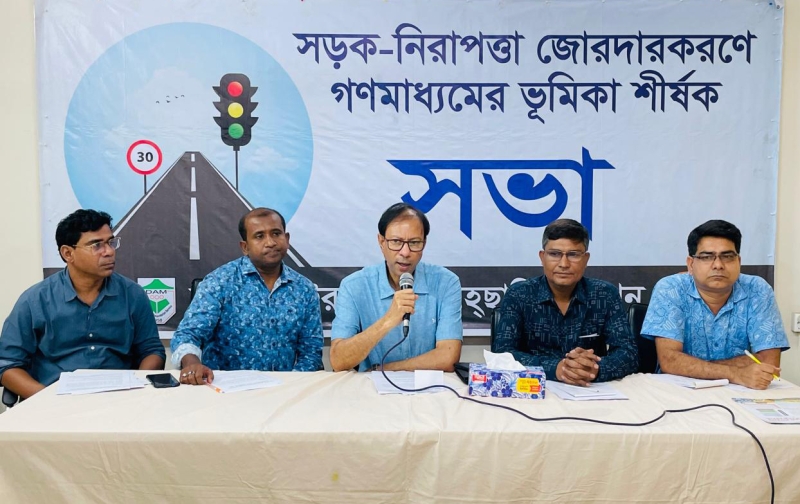- Puppet show enchants Children as Boi Mela comes alive on day 2 |
- DSCC Admin Salam’s drive to make South Dhaka a ‘clean city’ |
- 274 Taliban Dead, 55 Pakistan Troops Killed |
- Now 'open war' with Afghanistan after latest strikes |
- Dhaka's air quality fourth worst in world on Friday morning |
Ahsania Mission Calls for Road Safety Reforms Before Eid

As deadly road crashes continue to rise during national festivals, Dhaka Ahsania Mission has issued a nine-point set of recommendations to reduce traffic accidents ahead of Eid-ul-Azha. The call comes amid concerning data from the Bangladesh Road Transport Authority (BRTA), which shows that 215 people died and 278 were injured in 216 road crashes over 12 days during the last Eid-ul-Azha, while 132 died and 208 were injured during Eid-ul-Fitr earlier this year.
The recommendations were unveiled on Tuesday at a discussion in Dhaka's Shyamoli titled “The Role of Media in Strengthening Road Safety,” organised by the Mission’s Health Sector. Iqbal Masud, Director of the programme, stressed the urgent need for a dedicated Road Safety Law, as existing legislation has failed to significantly curb fatalities.
Among the proposed measures is the immediate enforcement of safe speed limits, alongside the development of a comprehensive guideline for managing speed, especially during Eid journeys. Masud emphasised the need to ensure drivers receive adequate rest by regulating and monitoring their working hours, noting that driver fatigue is a major contributor to road accidents.
The Mission further recommended banning the operation of slow-moving battery-run vehicles—such as Nosimon, Korimon, Tempo, and Bhutbhuti—on major roads and highways during Eid. Designating separate lanes for slow and fast-moving traffic was also highlighted as a key strategy to reduce collisions.
Ensuring pedestrian safety was another focal point. Suggestions included clearing footpaths of encroachments, encouraging the use of footbridges and zebra crossings, and raising awareness about the dangers of using mobile phones while crossing roads.
Masud also highlighted the need for stricter enforcement of helmet laws, proposing that both motorcycle drivers and passengers be required to wear quality helmets, and that dedicated lanes for motorcycles be introduced. He further urged the removal of unfit vehicles from roads and the enforcement of laws against driving under the influence of drugs or alcohol.
The Mission proposed mandatory use of seatbelts for all car occupants and the introduction of regulations to ensure child safety seats in private vehicles. To coordinate all these efforts and drive long-term change, the organisation called for the formation of a National Road Safety Authority tasked with aligning efforts across enforcement agencies and supporting the country’s Sustainable Development Goals.
Iqbal Masud concluded that while the Road Transport Act 2018 offered some promise, it failed to prioritise safety effectively. A dedicated, all-inclusive Road Safety Law is now essential, he said, to protect transport workers, passengers, and pedestrians alike.

